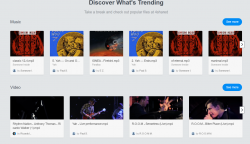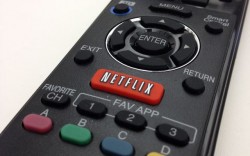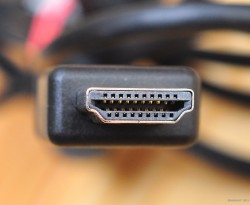So how did your Black Friday shopping go? Found a few bargains, or did you refuse to buy in to the hype? One thing I’ve noticed that the phenomenon, for better or worse, seems to be spreading to other countries, including here in Australia. I guess retailers don’t really need another excuse to have a big sale, but if you want to find out more about just what Black Friday really means for retail, have a look at this (super long) infographic, provided to us courtesy of FreeshippingCode.com.
As for the news this week, we have a nice mix of stories for you that will make you happy, angry, and informed.
![]()
Starting with the angry, this DRM story will definitely get your blood boiling, especially if you’ve just recently upgraded your PC (and you didn’t choose the latest Intel ‘Kaby Lake’ CPU). Your PC may be more than fast enough for 4K video, but you probably won’t be able to play Netflix in 4K, thanks to the sky-high (or rather, higher than Skylake) hardware requirements. Thanks to Hollywood’s paranoia, Netflix 4K requires PlayReady 3.0 DRM, which is only supported by Windows 10 at the moment. And also only by the practically ignored Edge browser. And also only supported by Intel’s latest generation ‘Kaby Lake’ CPUs.
Miss out any of these requirements, and you’re shit out of luck. Even if you purchased a 10-series Nvidia graphics card that supposedly supports PlayReady 3.0 and HEVC 10-bit accelerated decoding, you’re still SOL, because Netflix’s implementation currently doesn’t work this these cards.
Thanks a bunch, DRM.
With that said, the incompatibility with Nvidia cards at the moment may only be temporary and can probably be addressed with a software update. And if you don’t have the latest Nvidia card, then you probably do want a Kaby Lake CPU for Netflix 4K, as it supports accelerated HEVC 10-bit decoding. As for Edge, well, it’s and inoffensive choice while we want for Netflix to update their Windows app.
Still, DRM, what a pain in the hole!

4shared can’t understand why rights-holders are wasting time submitting “bogus” take-down requests to Google
Speaking of pains in the hole, 4shared has spoken of their own pain at seeing rights-holders waste their time filing Google DMCA take-down requests, many of which are bogus, when the file sharing site has a perfectly good anti-piracy tool at their disposal.
4shared says that rights-holders are wasting money hiring anti-piracy agencies that produce bogus take-down requests using nothing but a simplistic bot script to crawl their site for links, sometimes based on broad keywords such as ‘video’. At best, this results in links being removed from Google’s search results, but the page itself still exists on 4shared, meaning rights-holders are wasting their time.
Despite 4shared pleading with rights-holders and their agents to use the site’s own anti-piracy tool, the same rights-holders have dobbed 4shared in to the authorities, arguing that it’s a “notorious” piracy site that should be shut down. As I theorized a couple of weeks before, rights-holders may be holding off on using 4shared’s tool because they may be looking at suing the site in the future, and any “cooperation” with the site now could hamper these efforts.
But you know what they could do? Instead of obsessing over links and downloads, maybe, just maybe, the solution is already here. Affordable legal options, such as Netflix and Spotify, are already helping to reduce piracy, and the latest report from Australia confirms this.
It’s worth remembering that Netflix and Spotify, especially the former, aren’t perfect. In fact, there’s still way too much content that you can’t find on legal platforms, unless you’re willing to pay through the roof (and be limited in where and how to play the content). If rights-holder can be more committed to bringing in more value to consumers, then piracy can be reduced by a great deal. It will never be completely abolished though, as some people will never or cannot pay for content, but these people have always existed and in the absence of piracy, they simply consumed less content or none at all.
I get it. Rights-holders want their cake (ie. being able to charge the maximum for content) and eat it too (not having piracy), but that’s just not realistic. Their business model is effectively one where they put out an overpriced product and then force users to accept it via technical and legal measures. And it’s easy to see why consumers are choosing to go down a different route, whether this is piracy or Netflix.
======
That’s it for the week. Hope you smiled, frowned and otherwise felt informed enough to feel that reading this week’s WNR wasn’t such a waste of time. See you next week!









